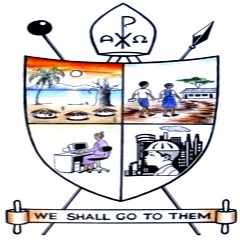
Karonga Diocese Transport Policy – November 2016
Read and Download PDF Karonga Diocese Transport Policy
Preamble
This Transport Policy is aimed at enhancing the provision of the Diocese’s transport services through effective management of diocese vehicles. This will increase staff understanding of the overall diocese fleet programmes, provide greater accountability and operate the diocese fleet, maintain, and repair it to acceptable standards. In view of our administrative structure, all vehicles, except those assigned to the Bishop and the Vicar General, belong to a shared poor. No other officer, other than the Bishop and the Vicar General, is assigned a personalised vehicle regardless of the vehicles having been bought through particular projects implemented by particular Desks or Departments.
1. General
1.0. Drivers and Vehicle Users:
1.0.1. Only diocese drivers and other authorized diocese management staff may drive a diocese vehicle.
1.0.2. Use of diocese vehicles must be for diocese business only. Incidental use not associated with official business is strictly limited and must have prior approval.
1.0.3. Drivers and passengers must comply with all Malawi Traffic Laws and government vehicle check unit regulations.
1.0.4. Diocese vehicles are categorized as personally assigned (e.g. those assigned to the Bishop and the Vicar General), work shared or motor pool for the rest of staff.
1.0.5. Drivers are responsible for immediately reporting of all accidents or any damage of diocese vehicles to the Transport Officer.
1.0.6. Drivers are responsible for basic checks like oil, coolant, tyre pressure before and after use of vehicles and report to the Transport Officer.
1.0.7. Drivers are to ensure all journeys commence as scheduled.
1.0.8. Drivers, and any officer authorised to drive a diocese vehicle, must account for the mileage by filling the logbook, which gives the date, the mileage at the beginning and the end of the trip, the destination and the reason for the trip.
1.0.9. The last driver to use the vehicle in a day is responsible for cleaning it before parking it for the next day.
1.0.10. In order to reduce the risk of accidents, drivers are advised not drive continuously for long distances without breaks. They should take rest whenever possible and should try to get to their destination before dark. Staff members should always remember that driving during the day is safer than night driving.
1.0.11. Drivers are allowed to drive diocese vehicles from 5:00 am to 6:00 pm.
1.1. Driver information:
1.1.1. The Diocese is not responsible for traffic violations by drivers of Diocese vehicles. Fines or penalties for breach of law by a driver are the personal responsibility of the driver and the Diocese shall assume no obligation whatsoever.
1.1.2. All Diocese vehicles shall bear Diocese logo clearly displayed.
1.1.3. The Diocese does not have policy of having ‘assistant drivers’. As such even drivers of trucks of the Diocese shall be solely responsible for driving the trucks.
1.1.4. Truck drivers shall be provided with protective wear for use when driving diocese trucks.
1.2. Driver requirements:
1.2.1. All drivers must operate diocese vehicles in a safe and prudent manner.
1.2.2. Drivers must check for damage before undertaking any journey and also report motor vehicle condition at the end of the journey to the Transport Officer.
1.2.3. Drivers must pay all traffic violations fines levied against them.
1.2.4. Ensure that motor vehicle and content are secure at all times.
1.2.5. Ensure that motor vehicle is properly serviced during course of operation or report any servicing need to the Transport Officer.
1.2.6. Protect and properly use fuel cards/money in their possession.
1.2.7. Notify Transport Officer if any seat belt is not functional.
2. Requisition of vehicles from the pool
2.0. Guidelines:
2.0.1. Any employee may reserve a vehicle for use provided they have enough money in their budget; subject to availability.
2.0.2. Reservations for trips to be done a minimum of 2 days in advance.
2.0.3. Reservations to be done on the requisition form. Telephone reservations are not accepted.
2.0.4. The requisition form shall be processed by the Transport Officer and a copy of fully processed form is sent to the user department. Vehicles will be released as per the requisition form details.
2.1. Cancellation of reservation:
2.1.1. Cancellation of reservations must be received within 24 hrs prior to the scheduled time of picking up the vehicle.
2.1.2. If the vehicle is not picked within 1 hr of reserved time, the reservation will automatically be cancelled without reference to the user.
2.1.3. The driver to whom a diocese vehicle is released is fully responsible for the security and operation of the vehicle until it is returned to the pool.
3. Use for official business purposes
3.0. Diocese charge back system for use of diocese vehicles will be approved by the Finance Council as per prevailing economic conditions – save diocese vehicles assigned to Kajikhomele Foundation Ltd.
4. Use by societies/organizations
4.0. They may requisition and pay at prevailing rates as approved by The Finance Council.
4.1. A late charge of equivalent of $40 per day will be imposed on the user if the vehicle is not returned within the reserved time period.
5. Fuelling and repair purchases
5.0. Fuelling shall be done using diocese fuel cards or cash where applicable.
5.1. No purchase for personal items is to be made with diocese fuel cards or funds.
6. Insurance for motor vehicles
6.0. All diocese vehicles shall be comprehensively insured and insurance certificates displayed on the windscreen as required by Law.
7. Maintenance and repair
7.0. All maintenance of diocese vehicles shall be performed at the Diocese Workshop and procedure will be:
7.1. On journey repairs:
While effort is made to maintain vehicle in the best condition, failure may occasionally occur, if breakdown occurs arrange for minimum necessary repairs if breakdown is outside Karonga Boma area.
7.2. Preventive maintenance:
Preventive services i.e. oil change, oil filter change, chassis lube fluid change, tire pressure check, belt inspection and interior cleaning will be based on the maintenance schedule. Major repairs will be done by prequalified garages.
7.3. Major exterior and interior vehicle cleaning will be done at the Diocese Workshop.
8. Prohibited uses
8.0. No person may use diocese vehicles or permit use of diocese vehicles in the following manner(s):
8.1. Reckless driving or over speeding;
8.2. Driving while impaired by alcohol/drugs or any other adverse condition;
8.3. Smoking while driving;
8.4. Use of diocese vehicles for personal gain such as delivery of goods not related to diocese business;
8.5. Transporting animals without prior approval;
8.6. Transporting non-employee passengers including family members unless with prior authority;
8.7. Use of trailer hitches and towing;
8.8. Handling loads that could structurally damage vehicle;
8.9. Using diocese vehicles for political campaigns.
9. Incidental travel and stops
9.0. Diocese drivers should remember that public perception of diocese vehicles is important and influenced by how and where the public sees the vehicle being used.
9.1. Drivers should not make incidental stops at locations the public would perceive as inappropriate e.g. liquor outlets and other locations, where it is unlikely that any diocese business or allowable incidental use is involved.
10. Accidents
10.0. If a diocese vehicle is involved in an accident with a third party, the report of the accident must be made at once to the police and the driver should get a copy of the report written by the investigating officer.
10.1. The driver should then fill an incident report and give it to the Transport Officer, who in turn shall forward it to the insurer.
10.2. In case of an accident, drivers are advised to:
10.2.1. Stop at once;
10.2.2. Take steps to prevent further accidents (put on hazards, set out warning devices);
10.2.3. Notify the Transport Officer and call the police immediately;
10.2.4. Obtain the license plate and insurance policy of the other vehicles involved;
10.2.5. Protect passengers, vehicles and cargo;10.2.6. Tactfully obtain names, addresses and phone numbers of all witnesses;
10.2.7. NOT to admit liability and not to sign anything except police report;
10.2.8. To discuss specifics of the accident only with the police or the Transport Officer.
11. Required training
11.1. Once every 2 years, the Transport Officer and assistants will be required to attend fleet management training.
11.2. Once every 2 years, drivers will be required to attend defensive driving, first aid and a refresher course on driving.
12. Review
12.1. This Policy shall be reviewed after every three (3) years. If, however, there are developments that necessitate earlier review, a review shall be done before expiry of the three-year period.
13. Effective Date
This Transport Policy shall take effect as from 1 December 2016
AUTHORIZED BY:
Rt. Rev. Martin A. Mtumbuka
BISHOP OF THE DIOCESE OF KARONGA
